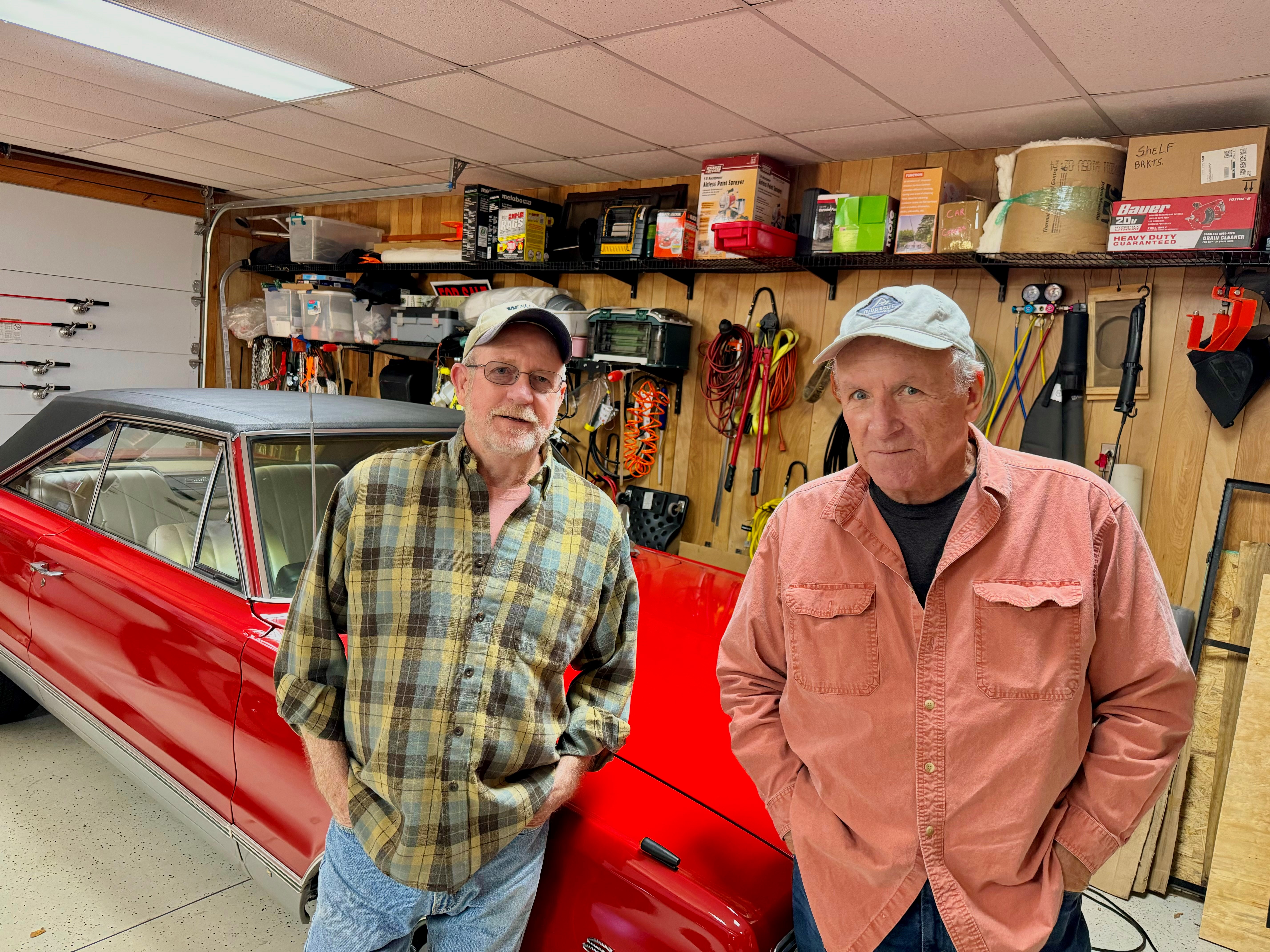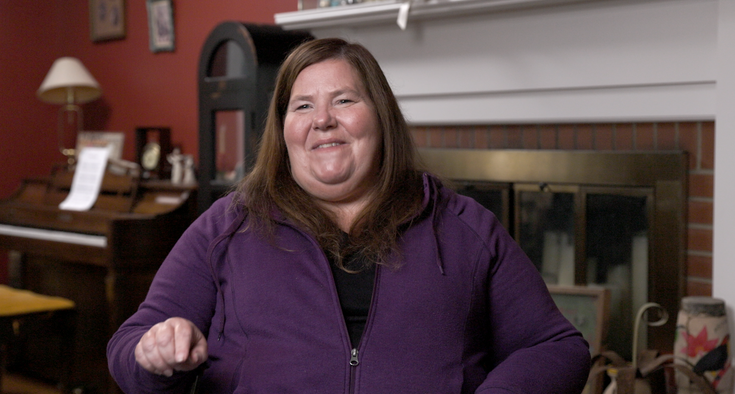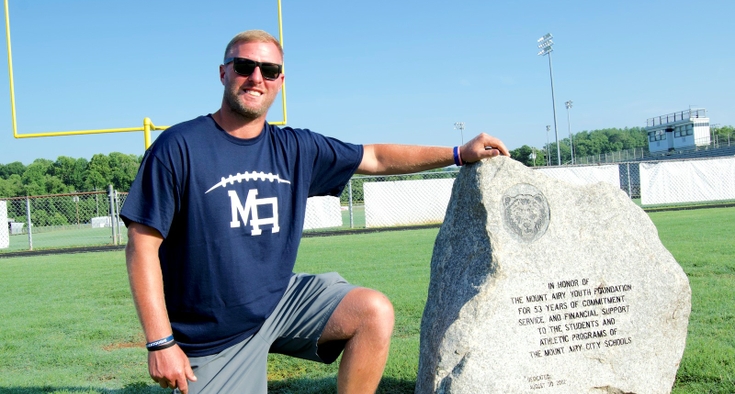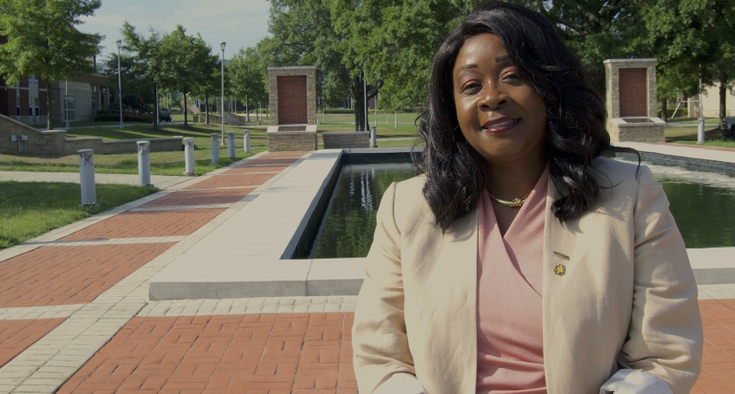Even before their lung cancer surgeries at Novant Health Forsyth Medical Center in Winston-Salem, Garry Hoover and Gary Pippin had a lot in common.
Both are 70 years old.
Both are self-professed Yankees: Hoover from Erie, Pennsylvania; Pippin from Delanco Township, New Jersey. Before retiring, Hoover was a toolmaker and machinist, then owned and operated a greenhouse. Pippin was a K-9 officer (bloodhounds and German shepherds), then a detective with the Delanco Township Police Department.
Both moved to small towns in North Carolina later in life. Hoover and his wife, Sue, settled in Kernersville to be closer to their kids and grandkids. Pippin lives in Westfield after promising his wife, Chrystal, they’d one day return to her native state. She was 62 when she died from vaginal cancer in 2022 – 16 years after putting down roots again in Tar Heel soil.
Hoover and Pippin are handy, which is how they landed maintenance jobs at Hanging Rock State Park near Winston-Salem. They got to know each other riding around the park in a maintenance truck.
Both smoked like crazy: Hoover 1½ packs of Winstons a day for 35 years, Pippin a pack of Marlboros a day for 45 years.
The smoking leads to one more thing they have in common: their advocacy for early detection for lung cancer and the comfort of having a buddy with whom to share the experience of diagnosis and surgery.
“When the chips were down, we were both there to back each other up,” Hoover said. “We still are today.”
Supportive care throughout your cancer journey.
‘There’s nothing to it’
Their tandem journey began in the spring of 2024.
Hoover had been dealing with some abdominal pain. March 17, he had a CT scan at Novant Health Cancer Institute - Forsyth in Winston-Salem to determine what was behind it. The scan detected a nodule (mass) on his lower left lung. A PET scan April 2 offered a more detailed imaging of the cancer. Surgery to remove it followed on April 25. He went home four days later.
A month after Hoover’s successful surgery, it was Pippin’s turn.
During his annual physical at Novant Health Salem Family Medicine in Winston-Salem, Pippin was advised to undergo cancer screening. His smoking history was a major factor. Pippin’s CT scan May 28 detected a nodule on his right lung. That was followed by a PET scan June 11.
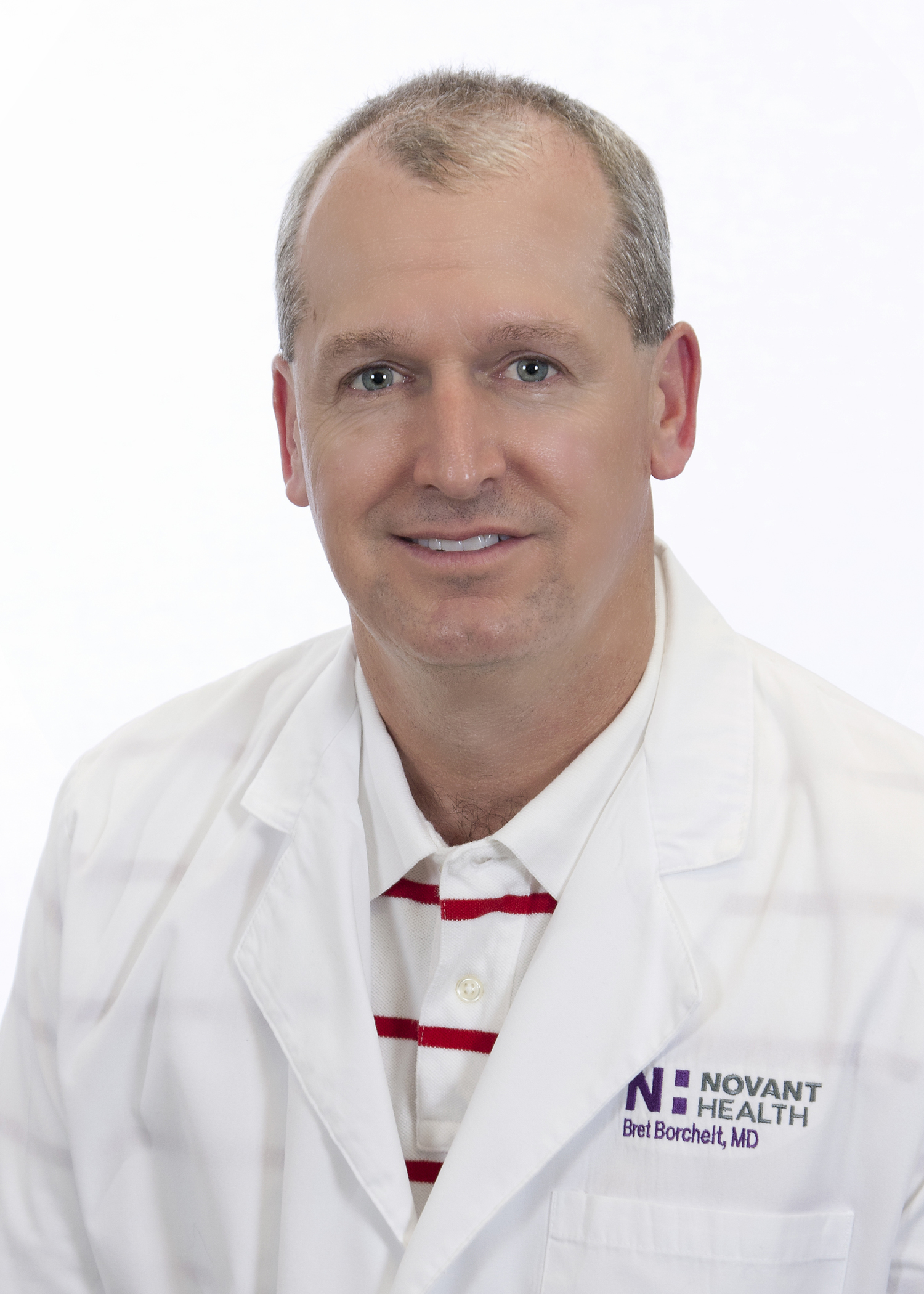
Surgery was scheduled for Aug. 14. Why the two-month delay from scans to surgery? Pippin wanted to wait for Dr. Bret Borchelt of Novant Health Cardiothoracic Surgeons in Winton-Salem to operate on him – just like he operated on Hoover.
Here’s what Pippin told his medical team: “Do exactly what you did for my friend.”
Here’s what Hoover told Pippin: “There’s nothing to it. Dr. Borchelt did mine and I’m still here.”
Five days after Borchelt performed the surgery, Pippin went home.
‘The sooner you act, the better’
Hoover and Pippin are honored to serve as cautionary tales if their story inspires more people to get screened. Only 4.5 % of eligible patients did so in 2022, according to the American Lung Association. As a result, many cases aren’t diagnosed until cancer has spread to other parts of the body. And that means lowered chances for a good outcome and more complex, difficult treatments.

Hannah Palmer, a nurse practitioner at Novant Health Cancer Center in Winston-Salem, was part of the team that opened a lung nodule clinic in Winston-Salem in 2022. Its mission: Increase diagnosis and intervention among high-risk patients.
The clinic’s rapid lung nodule review team initially followed up on Hoover and Pippin's abnormal imaging with requests for PET scans, review of their case by a multidisciplinary team and prompt referrals to see cardiothoracic surgery.
In 2023, roughly 40% of the patients assisted by this team in Winston-Salem were found to have cancer. The rapid lung nodule review team’s mission is to expedite diagnosis and early intervention for early-stage lung cancers.
“With lung cancer, the sooner you act, the better because an early-stage lung cancer can be cured,” Palmer said.
Lung cancer does not always have symptoms
Lung cancer can be asymptomatic (free of symptoms) even when in an advanced stage. That is why screening is so important. When people wait until they get symptoms, 75% to 80% of them may have advanced disease that may not be curable.
The American Cancer Society cites these common symptoms: A cough that doesn’t go away or gets worse; coughing up blood or rust-colored spit or phlegm; chest pain that is often worse with deep breathing, coughing or laughing; hoarseness; loss of appetite; unexplained weight loss; shortness of breath; feeling tired or weak; infections such as bronchitis and pneumonia that don’t go away or keep coming back; and new onset of wheezing.
Have a question or concern? Consult your primary care physician.
The statistics bear her out.
The National Cancer Institute estimates that 234,580 new cases of lung cancer will be diagnosed in 2024. More than half, an estimated 124,070 people, will die.
‘I’m able to do anything I could do before’
Hoover and Pippin told their story from the Hoovers’ back porch overlooking a neighbor’s hay field. They praised the care they received at Novant Health. They talked about the postsurgical CT scan every three to six months that offers the all-clear and, with it, peace of mind. Both are grateful they did not require chemotherapy or radiation.
Hoover and Pippin aren’t afraid to pull up their shirts and show off their surgical scars. In their minds, the scars are badges of honor.
“It’s real easy for a 70-year-old guy to say, ‘I’m not monkeying with this (lung cancer surgery)’,” said Hoover. “You think you won’t be worth a hoot afterward, even if it’s successful. But that’s not the case. I can go out there now and grab a shovel and dig a ditch across the yard.”
“I have 15 acres to take care of. I’m able to do anything I could do before my surgery,” said Pippin.
One more thing.
The two friends no longer smoke.
Screening and prevention for lung cancer
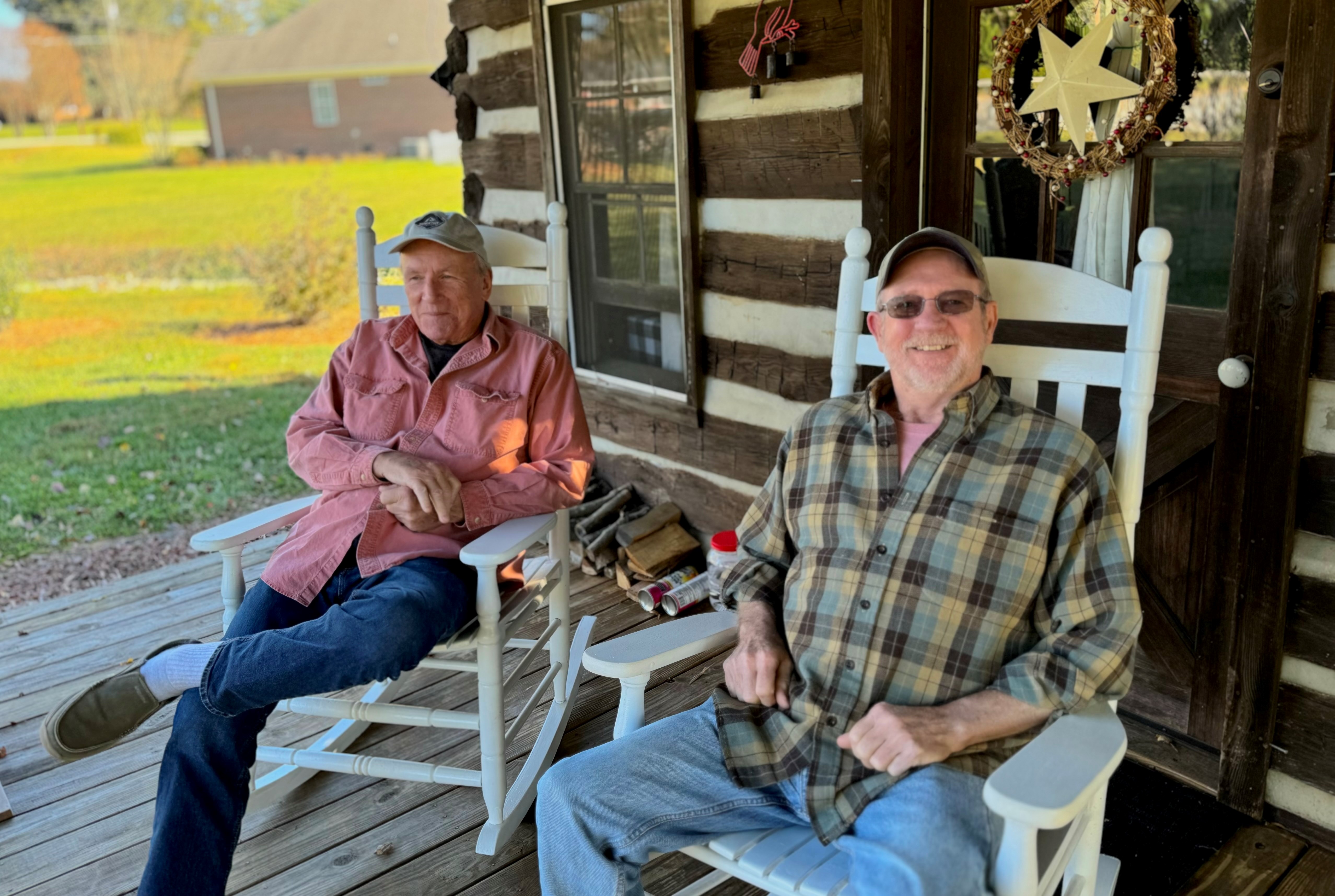
Dr. Bret Borchelt of Novant Health Cardiothoracic Surgeons in Winston-Salem and James Ballard, a physician assistant with Novant Health Salem Family Medicine in Winston-Salem, shared screening guidelines for early detection of any cancer:
- Patients who have an equivalent of 20 pack years of smoking (one pack per day for 20 years or two packs per day for 10 years), are ages 50 to 80 years old and have smoked within the last 15 years are eligible to be covered by insurance for CT screen exams.
The screenings are easy to get done and do not require intravenous contrast or sedation. Far easier than a colonoscopy, they noted. To get one, start by consulting your primary care physician.
However, the best thing you can do to avoid lung cancer is quit smoking. It doesn’t have to be cold turkey. There are many effective treatments and strategies for smoking cessation.






